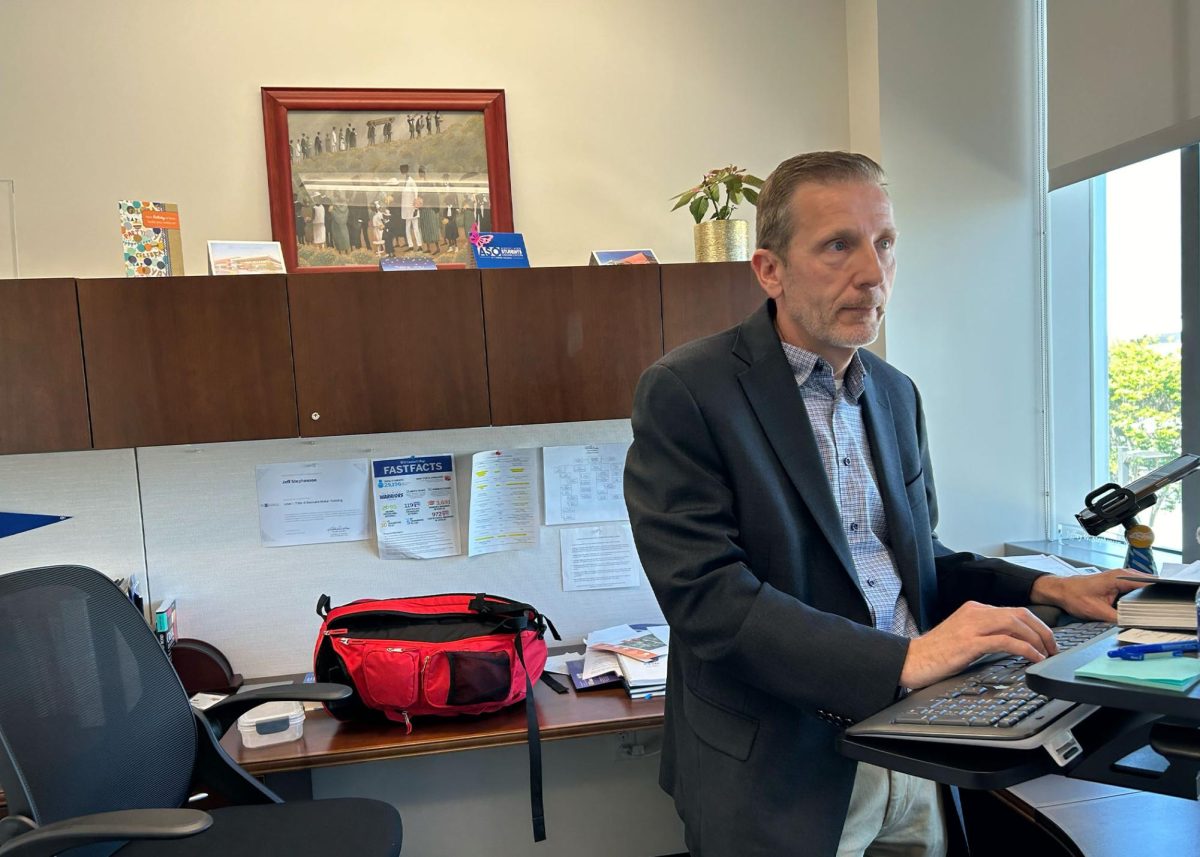Inclusivity, interactivity and adaptation are key teaching strategies faculty should integrate into their courses, according to a recent report presented to the Academic Senate on Tuesday, March 19.
The Institutional Learning Outcomes report revealed effective classroom practices for student success include learning students’ names, tailoring course content to their interests and incorporating hands-on activities.
“For the most part, all of us are here for the same reason,” English professor Chris Page said. “We care about education, we care about students and we want students to succeed.”
Institutional Learning Outcomes (ILOs) are the knowledge and skills students should exhibit after their educational journey. El Camino College evaluates one of the four pillars of the ILOs each academic year to assess if it is being met by students.
A main factor highlighted in the report found faculty interaction with students helped students feel supported in the learning process.
Biology major Andrew Yousef, 19, agrees having a greater connection with other students in his classes helped foster a better environment for him to learn in.
“You kind of have that set community with people where you’re less afraid to ask questions because you’ve known these people for a long time,” Yousef said.
Yousef believes the majority of his professors care about his success, but he did mention some factors that he said made it difficult for him in some of his courses.
“I think it is dependent on the age and teaching style of the professor,” Yousef said. “Some of my younger professors are willing to change and try new things… but some of my older professors teach in a very old-fashioned way where you show up to class, take notes, no talking, just ask questions and you leave.”
Page, who helped put together the report, said the ILOs serve as a process for the entire college to gauge which students are accomplishing their intended educational goals and allocating resources towards areas that need improvement.
“[One] big thing was just how all these teachers who were successful, really focused on student groups and interactivity during class,” Page said. “Learning names, students working in groups and being interactive during class… those are the things that came up over and over and over.”
Co-coordinator of Guided Pathways Polly Parks said the latest ILO report contained large amounts of student and faculty feedback, marking the first time a report included such extensive data.
“This is the first time we’ve ever done ILOs this way,” Parks said. “This is the first time it’s ever been super in-depth and meaningful.”
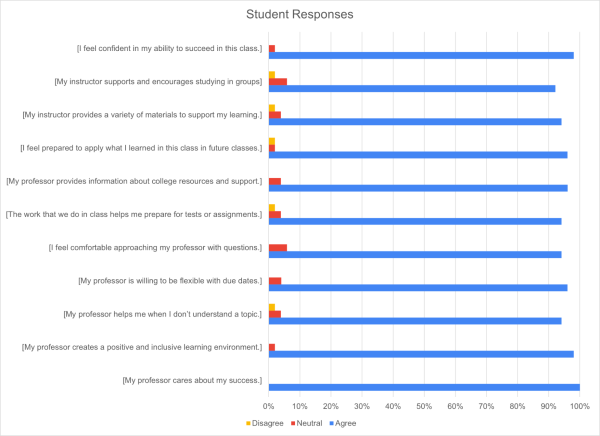
Another factor measured by the report was a set of questions sent to students by an anonymous survey. There were 51 total responses from the three courses surveyed: 56.9% from English 1A, 37.3% from Psychology 101 and 5.9% from Anatomy 32.
The most notable answer was that 100% of the respondents said their professors cared about their success.
“From what I’ve been told the previous assessments were kind of just checking boxes for the state…so they’ve never really been meaningful,” Parks said. “They’ve never really been acted upon [and] they’ve never really been helpful for the college. And now we’re moving towards a place where they are more helpful, where they are going to potentially be acted upon.”
Parks said previous reports were not as detailed as the current ones because colleges rushed to check boxes to meet state requirements.
“I think that to an instructor, the idea is, you know, a little bit of accountability,” Parks said. “In general, you could say the report is accountability for the college.”



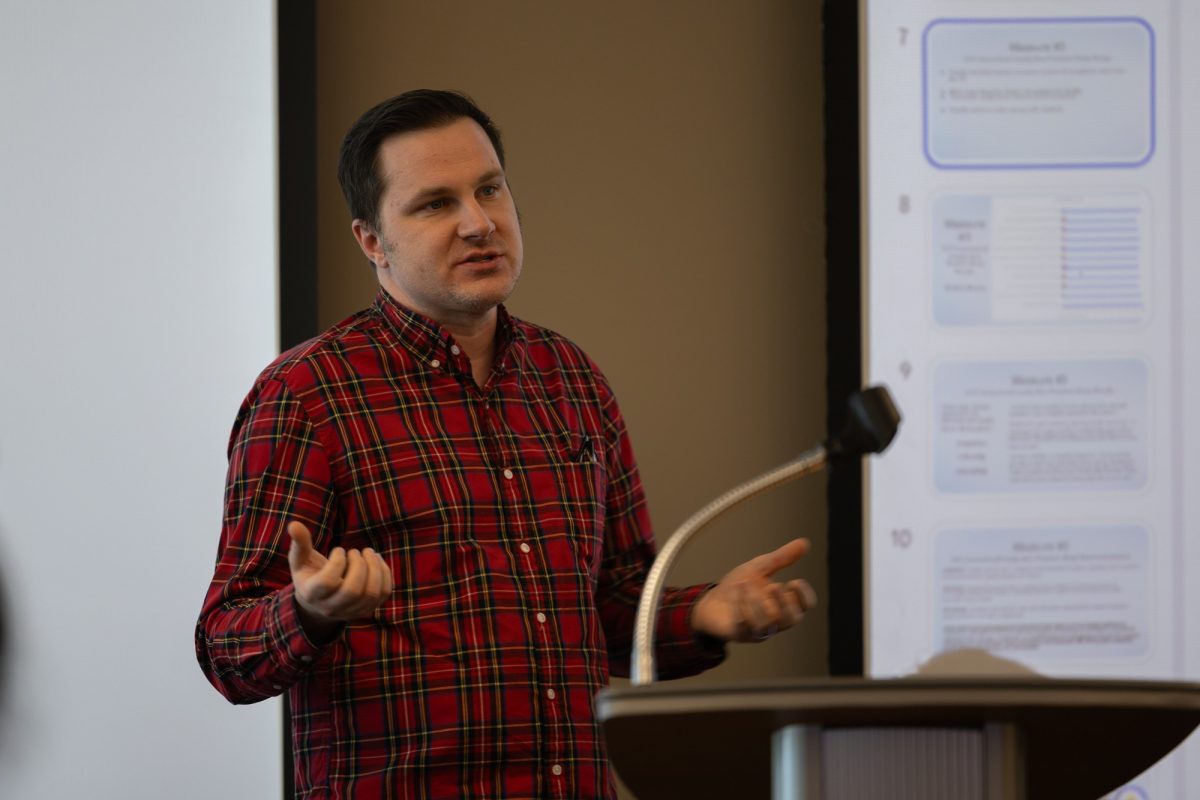


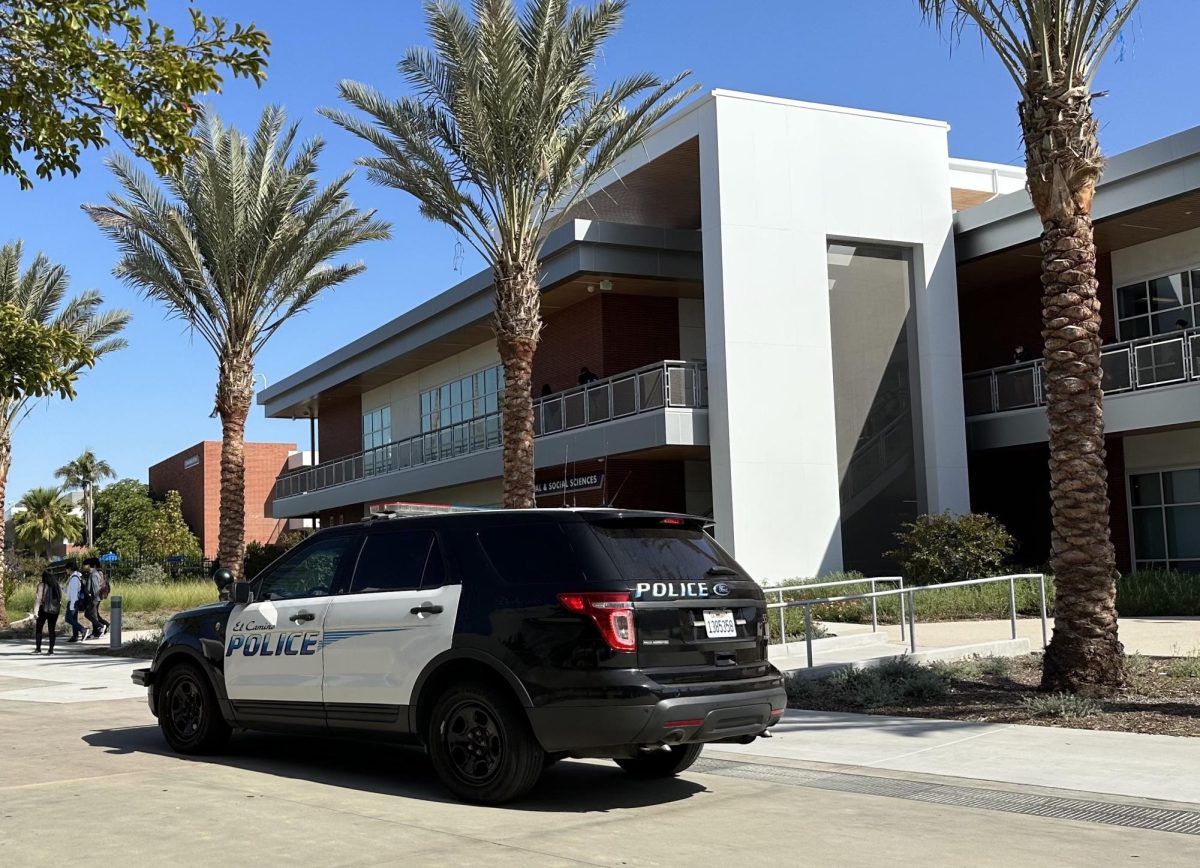
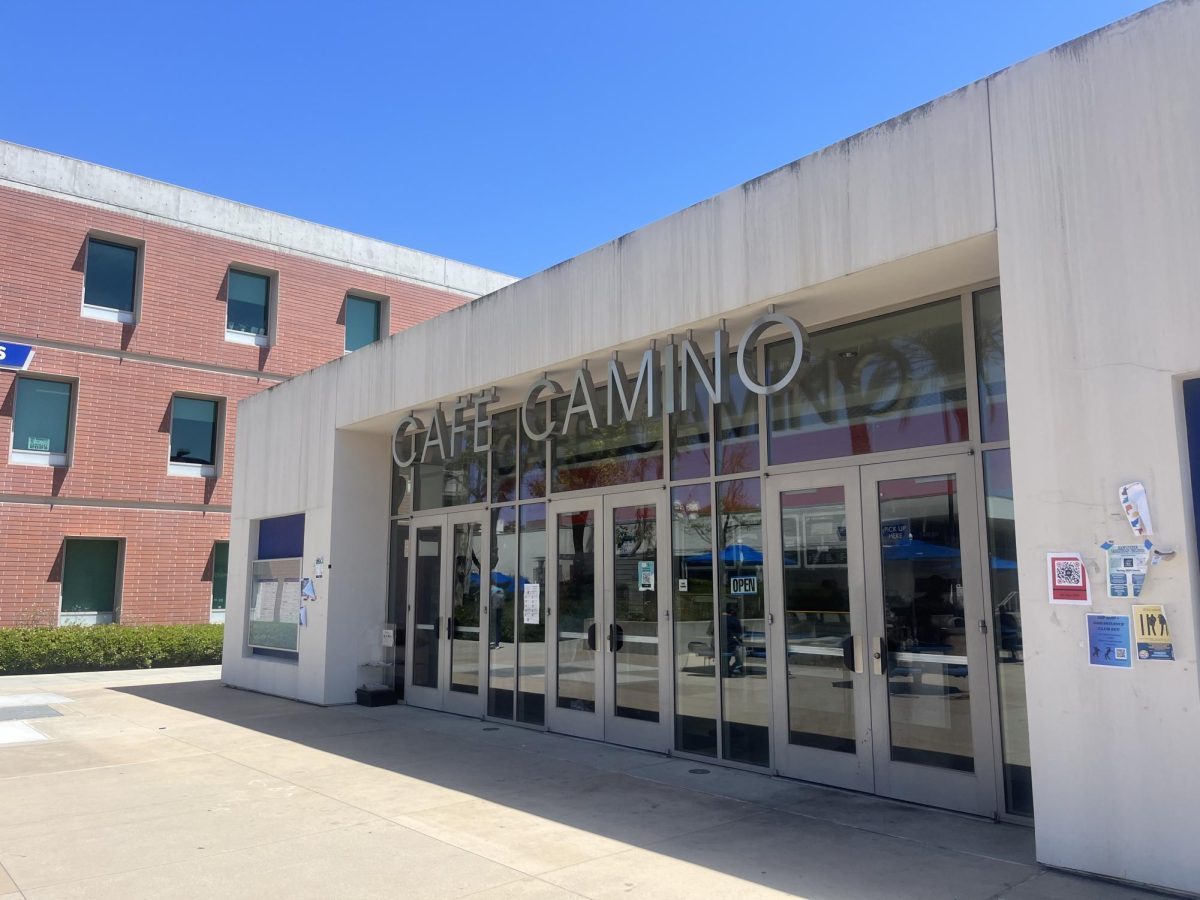
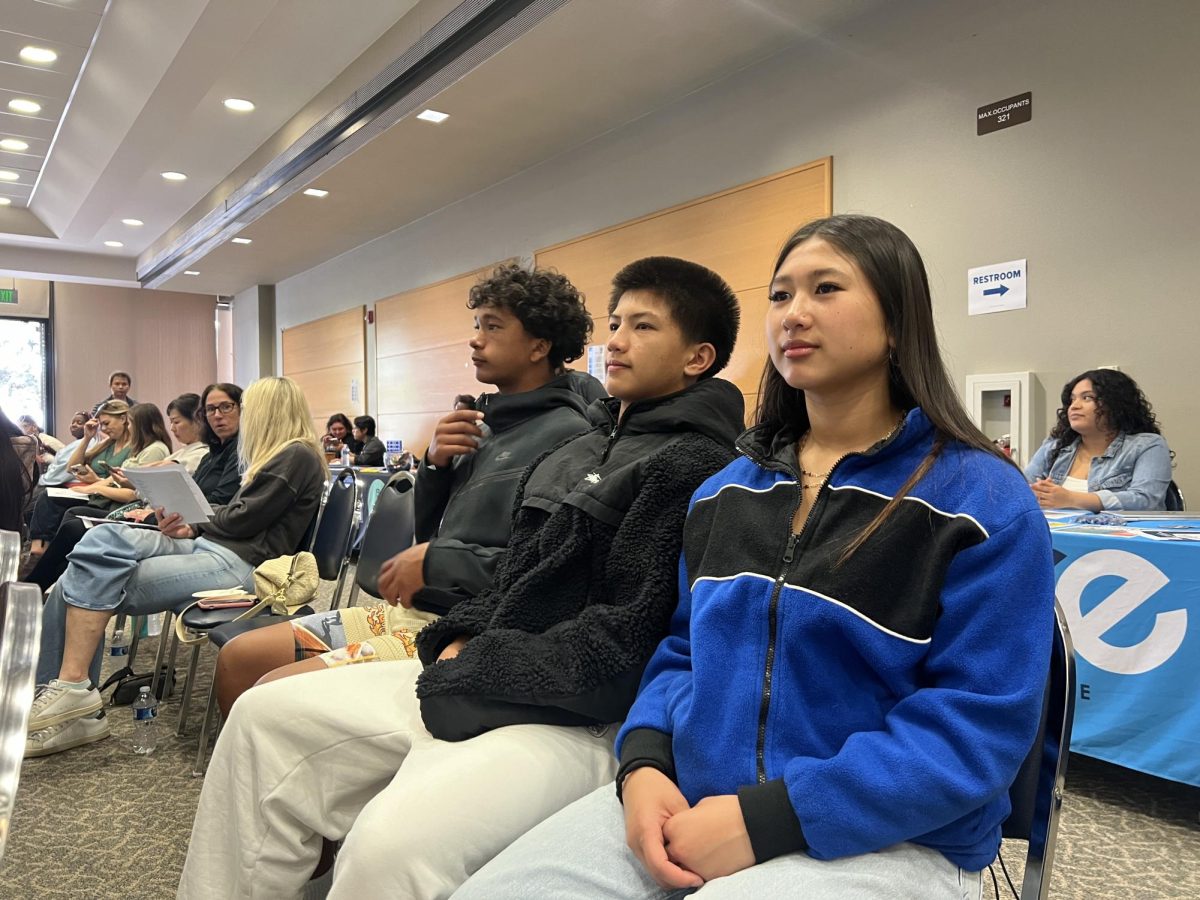
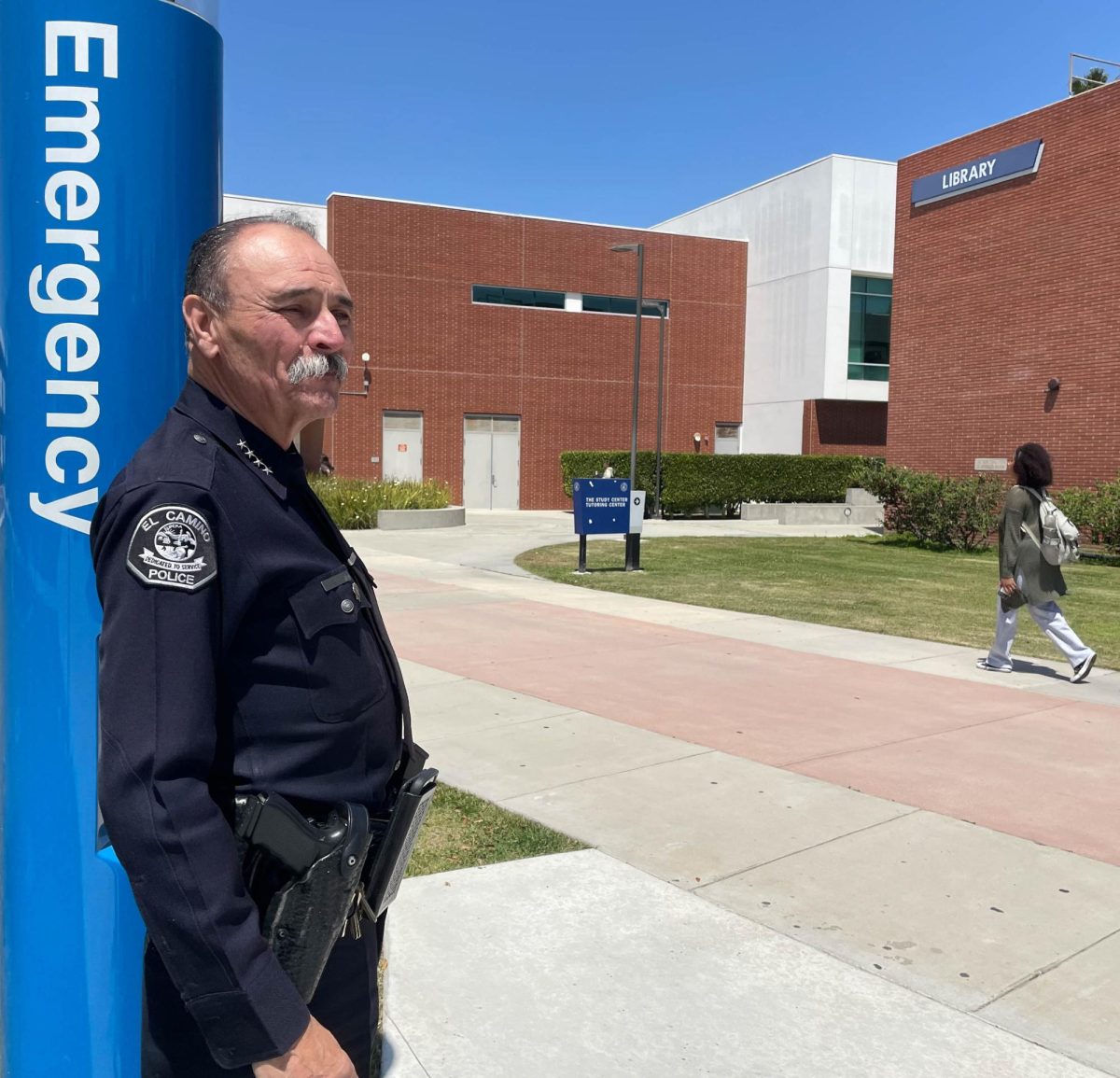
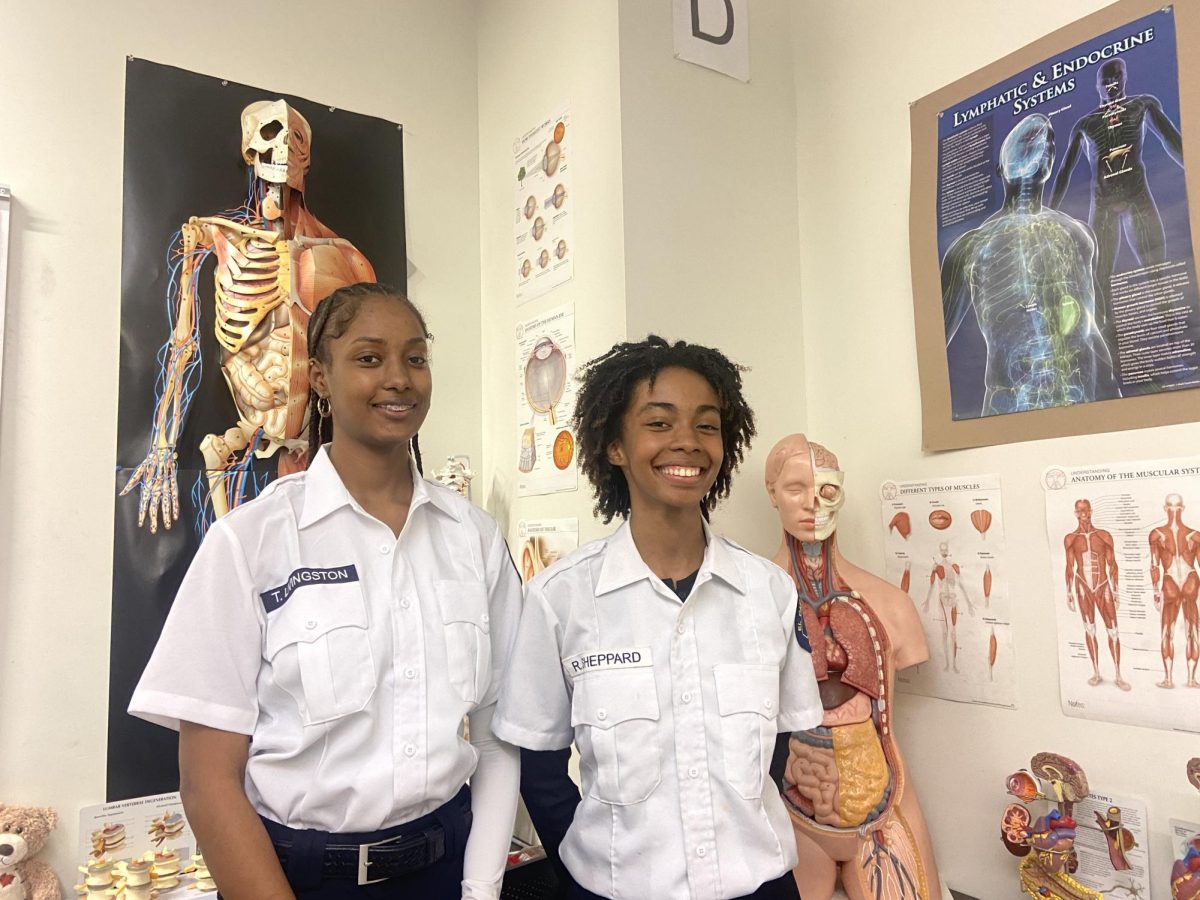
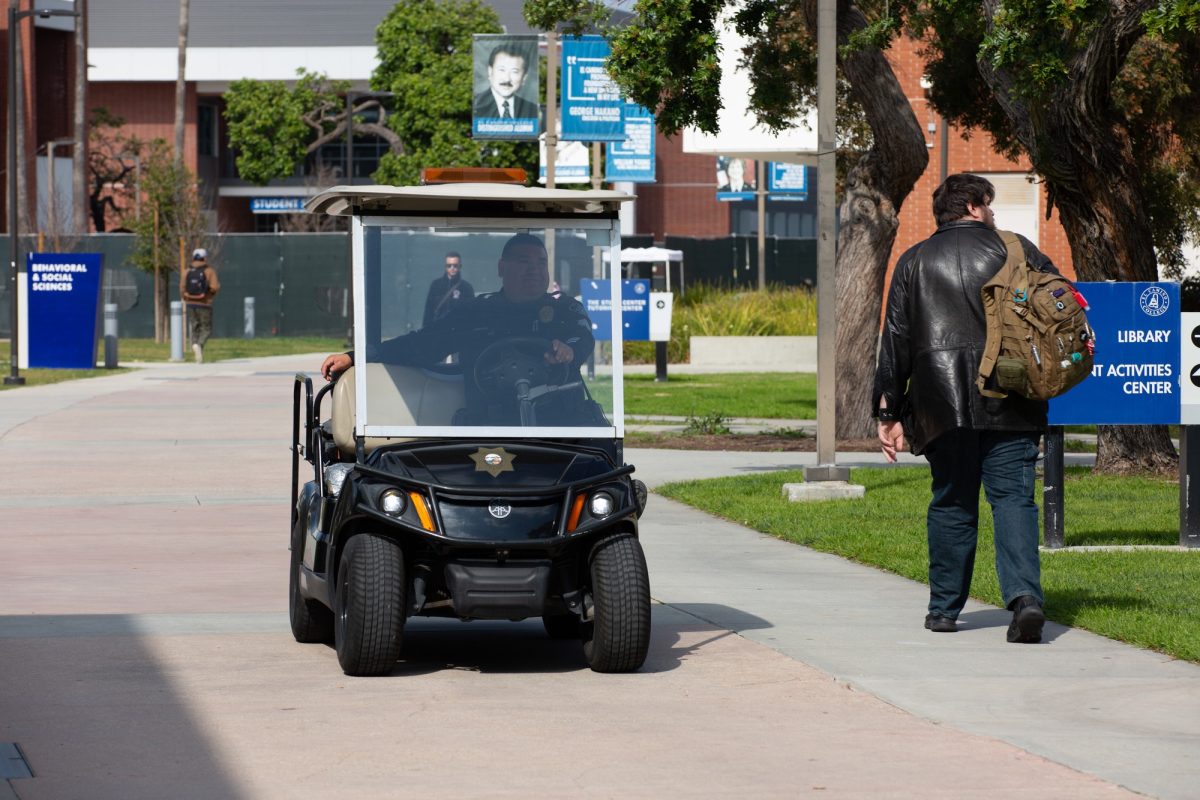
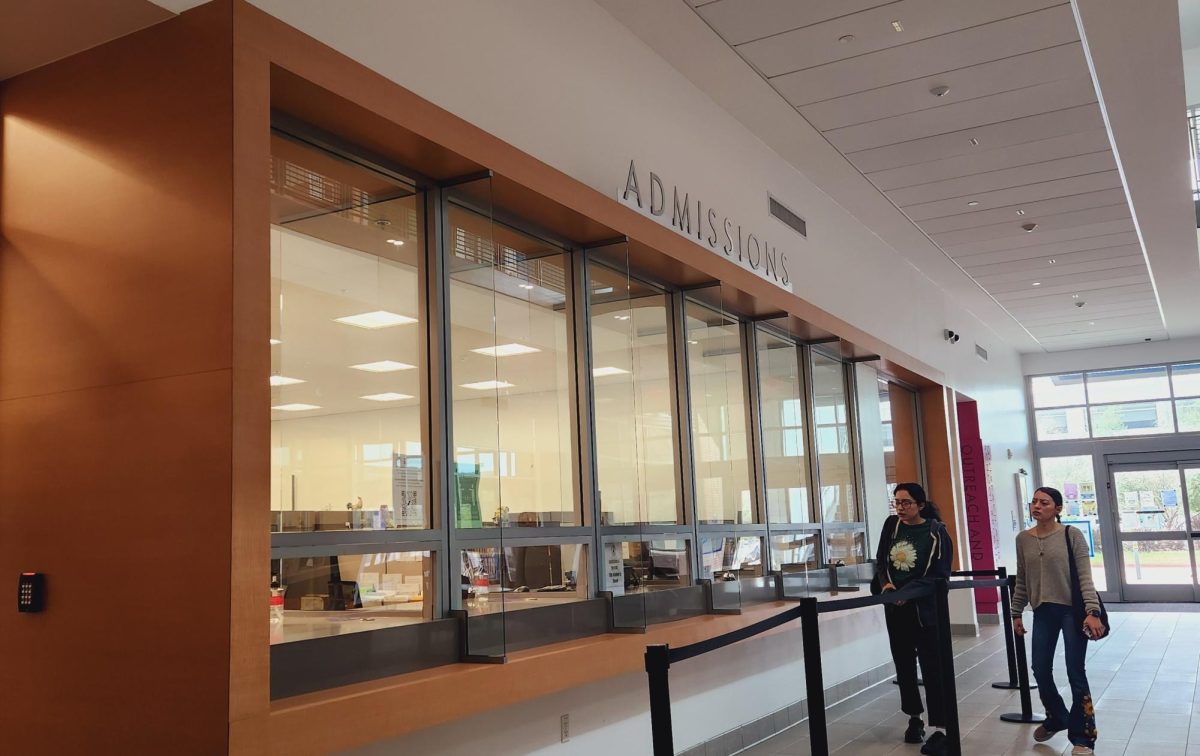
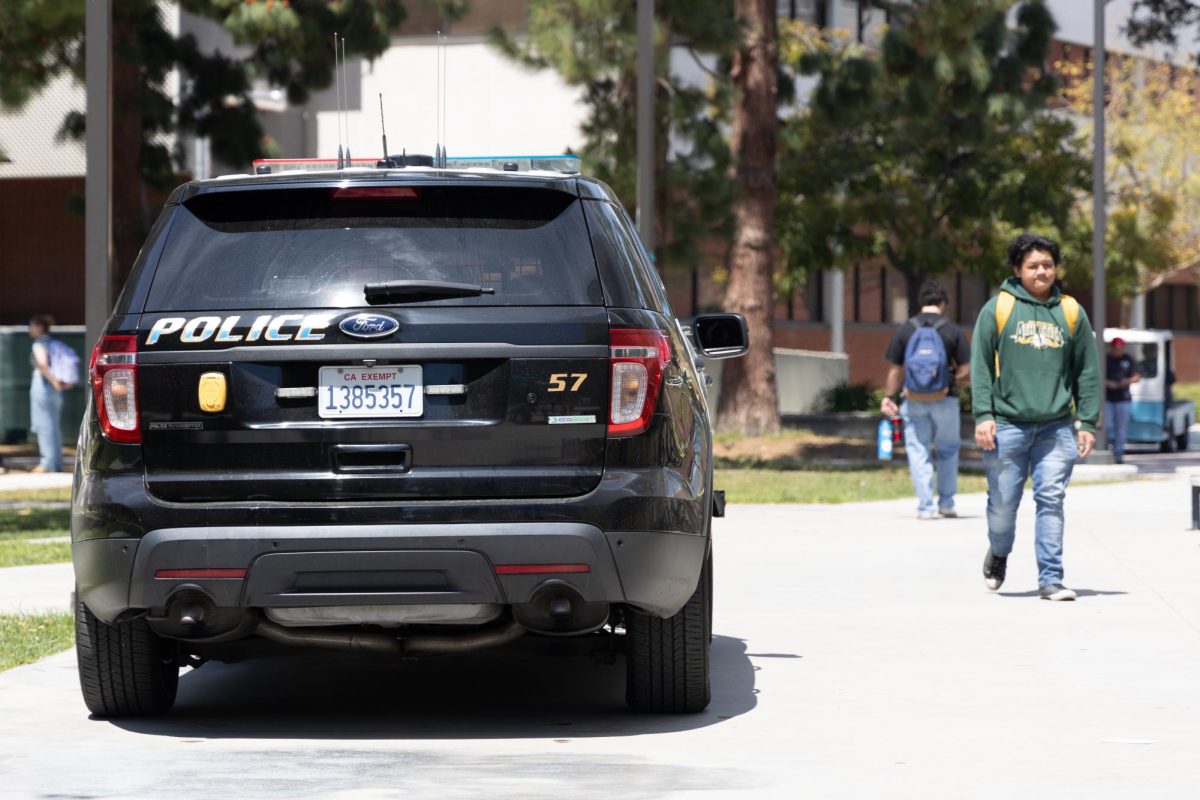
![A United Airlines jet takes off from Los Angeles International Airport on May 15. From Jul. 15 to Aug. 4, El Camino students will study in Madrid, Spain. “Once students understand the little elements [of Spanish culture] that are different, they start to appreciate Spanish culture,” Study Abroad Program Director Xocoyotzin Herrera said about the effects studying abroad has on students. (Raphael Richardson | The Union)](https://eccunion.com/wp-content/uploads/2024/06/J8-KATIE-1-1200x800.png)
